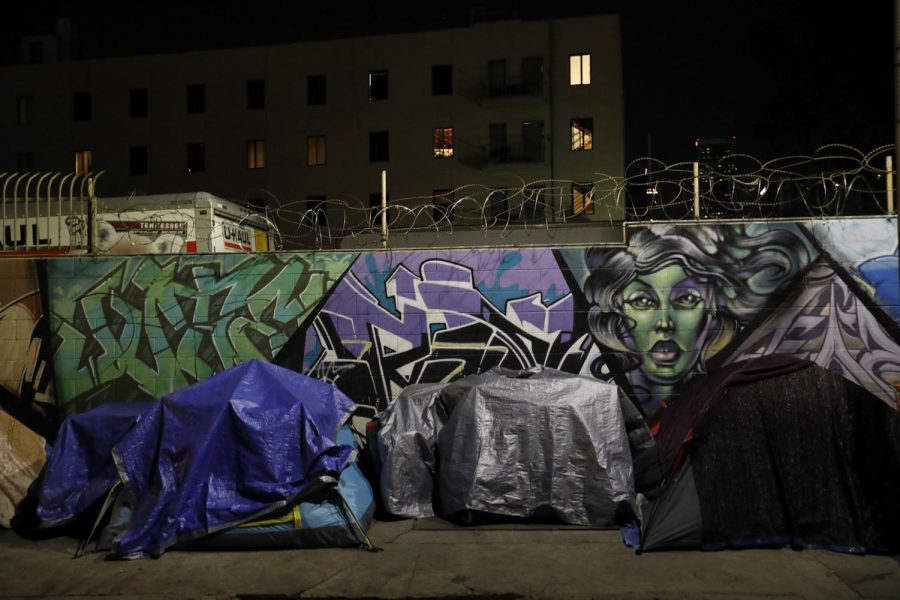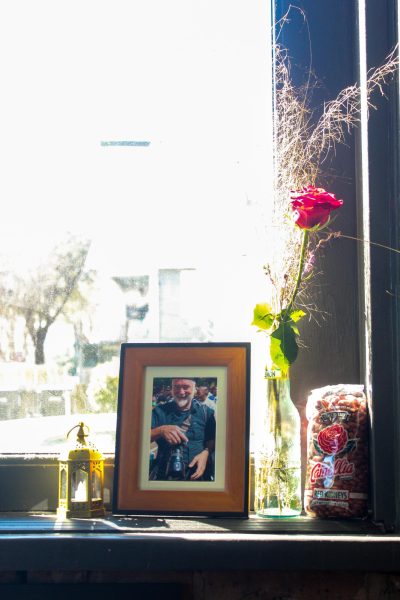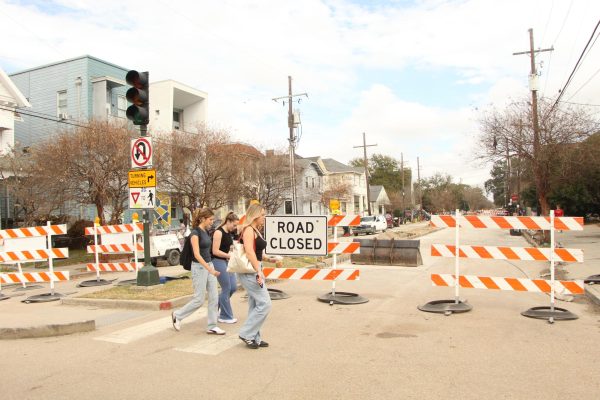Column: Sleep out for youth homelessness
Francine Orr/Los Angeles Times/Tribune News Service
Tents line San Julian Street in the skid row area of Los Angeles before dawn on February 2, 2018. Homelessness has impacted teenagers in New Orleans and across the country.
My toes are cold, my head is dizzy from swinging in the hammock, and my rings are slipping off of my wintry hands. Tomorrow morning, I can walk inside, make a cup of warm coffee or tea, and hug my family and friends when I drive to them. I can go to the counseling center to let my therapist know how bad my day was. I can call my professor for an extension.
College may feel like the most stressful thing at times. Studying for finals seems impossible. Waiting in line near the Orleans Room for Starbucks makes you late for class. Sharing a room with another person and showering with shoes on in Biever feels like the end of the world.
“Go forth and set the world on fire,” they tell us, and it’s powerful. But what if your world is already on fire and you don’t want it to be?
The OR feeds us hot meals. The thin mats under our mattress toppers in our dorms support our backs. The visits we make to the theatre, to class, to the library, to the gym, remind us that we made a choice to be a part of a community that allows us to contribute to something bigger than ourselves—that will allow us to transition into the real world with ease.
Think about what it might be like to sleep on the sidewalk, pregnant at 16, or running away from an unaccepting home when you’re queer. Imagine coming to New Orleans, leaving all you know behind to escape an abusive relationship. Imagine feeling stuck in a place where we as students choose to come to or stay in.
The struggle of time management and socialization and homework all the time is real, and it is difficult. It affects our mental health in great ways, and we need to lean on each other to get through that. We need to take days off when it gets to be too much. But what if you couldn’t take a day off? Because you have nowhere to call home. No one to call family.
I am sleeping outside tonight because I want to raise awareness for youth homelessness, about what it’s like to sleep outside without anything other than yourself at the tail end of your childhood, the most formative years of your life. Youth who are homeless aren’t far away.
They are us, our brothers and sisters, going through heartbreak and a pandemic, growing up and launching into life as an adult. We have a duty in our positions of privilege to give love and hope to those who’ve been dealt a bad hand.
Covenant House in New Orleans hosts close to 900 people per year in their late teens and early twenties. The organization promises open intake, unconditional love, and absolute respect to everyone that stays there. This year, I chose to participate in the organization’s sleep out, where hundreds of people raise money in an attempt to end youth homelessness.
I raised $1,400. It’s only about two months of my rent, and 1/30th of Loyola’s tuition this year. But it’s also close to four months in groceries for the average American family and $1400 more than Covenant House charges struggling youth to stay at their location on South Rampart downtown.
During the moments where we hurt the most through the pandemic or a hurricane, through tests and papers, or the difficult times that can come with the holidays, we must remember that we need each other to get through and that we are in a position of privilege, one where we mustn’t forget ourselves, but instead include every last one of us.

Gabby Killett has been an award-winning journalist for The Maroon since her freshman year in 2019 before helping it win the top award in college media,...





